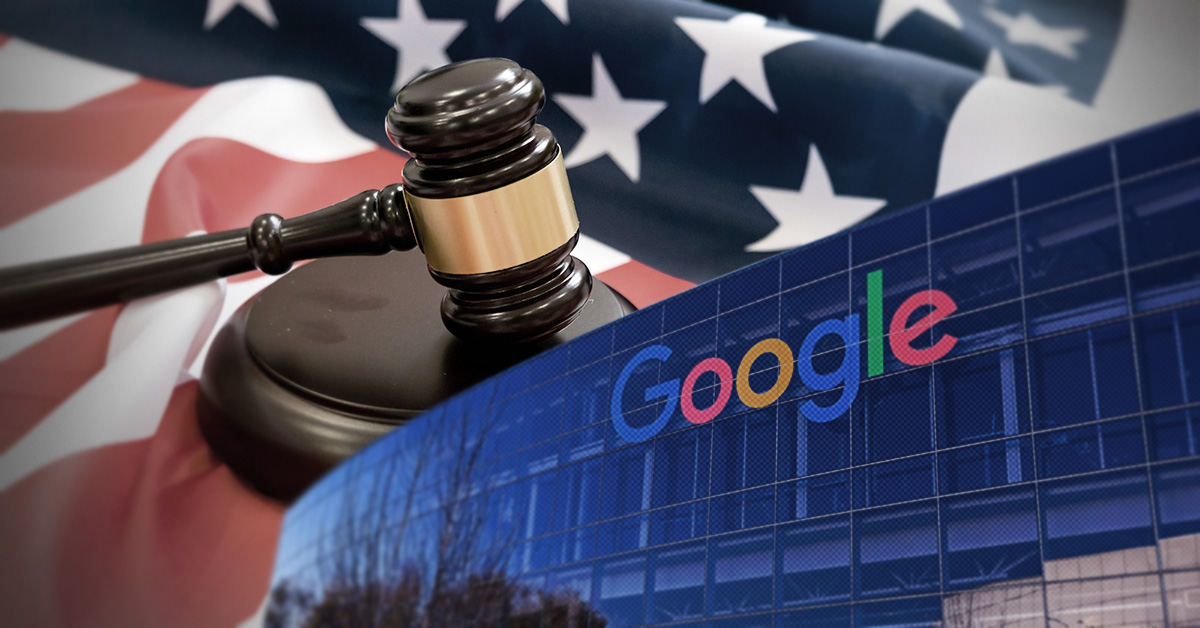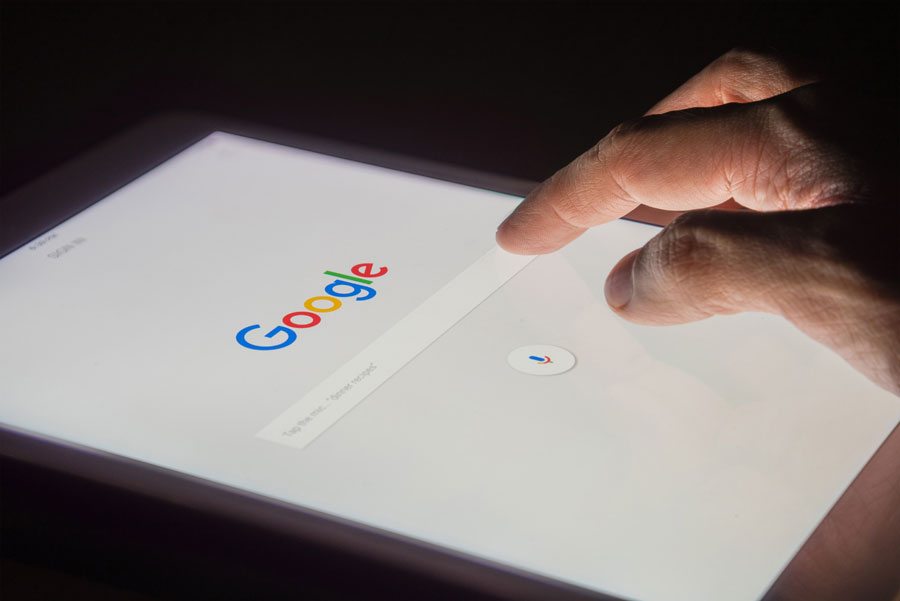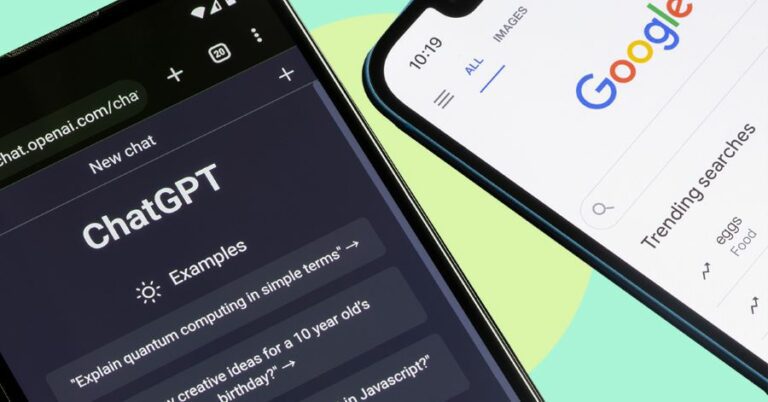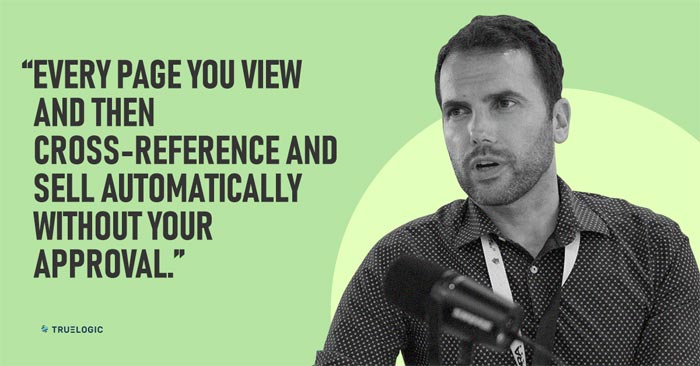Truelogic Episode 76 Recap: U.S. v. Google: The Biggest Antitrust Trial in 20 Years

Just a couple of weeks after Google celebrated its 25th birthday, the tech giant will face hard questions from the US government about how it orchestrated its dominance of internet search. It’s the government’s first major monopoly case to make it to trial in decades and the first in the modern internet age.
The outcome of the landmark case could bring significant changes to Google and the future of the Internet. But it’s equally likely the trial will result in no changes and Google will be free to continue operating however it wants.
Podcast Transcription
Berns San Juan: Welcome to the Truelogic DX Podcast. And it’s going to be a bit of a somber podcast for those of you who don’t know, I am a fan of Google, And up in, recently in the news, although not as recently, I’m sure a lot of people that pay attention probably knew this was a long time coming. But recently it’s hit the news that Google search dominance is at the center of one of the biggest antitrust trials in a quarter century. Many people are saying this is the biggest antitrust case since Microsoft.
So fairly recently, just a few days ago, Google celebrated its 25th anniversary. I’m not sure if you guys saw the Google snippet. And in a few weeks after the celebration of their 25th birthday, they are going to face hard questions from the US government. The allegation is that they orchestrated their dominance of internet search, and it’s the government’s first major antitrust case or anti-monopoly case in decades, and the first one in the age of the modern internet. I would say if you asked me, about groundbreaking antitrust cases in the US, the only ones that come to mind to me are Standard Oil, AT&T, Microsoft, and now Google. So it doesn’t happen a lot. And when it happens, it ought to be taken very seriously.
So Google has 92% to 96% of search share worldwide, right? That’s tremendous. By the way, they haven’t always owned that search share. Once upon a time, the second most popular search engine was YouTube which, yes, belongs to Google. But there also, once upon a time, the most dominant product search engine was Amazon, right? So it’s not like Google has held onto this 90% to 92% up search share forever. But let’s pretend, you know because those are blips in history. But let’s pretend that, yeah, Google owns 90% to 92% of search share globally and consistently. But the issue that the government has is that Google is leveraging its size, its resources, and its power to shut out, shut down, shut out other smaller players, and innovators, and that it is causing harm to the market by preventing other small companies from entering the market.
So what the DOJ alleges is that Google makes it nearly impossible for rival companies to compete because nobody has the same deep pockets that can pay Apple to be the default search engine for their applications. So just as an example, the trial is estimated to last may be about 10 weeks, right? So I feel for Sundar Pichai and I have mixed feelings about Google’s antitrust. Let’s jump into a bit more detail for those of you that care. I’m sure that a lot of us, like the more popular topics, but I think Google losing this antitrust case has implications for cert, which I’ll dive into the last portion of this conversation.
What is all about Google Search Anti-Trust Trial?

What is antitrust and why is Google in the thick of it? This is the first antitrust case in the modern age of the Internet. When Microsoft got sued for antitrust 20-25 years ago, there wasn’t the modern internet yet. In that case, in the Microsoft case, the court had ruled that Microsoft had unlawfully attempted to hinder other applications. So how did Microsoft do that? It’s because back in the day, and this is if you remember Windows 3.1 and Windows 95, maybe Windows 98, maybe, but I don’t think Windows 98, but Windows 3.1 and Windows 95.
When you built your PC with the Windows application, all the desktop applications already came to default. The word processor was there, the spreadsheet was there, the presentation deck was there, and everything you needed for your computer was there. What the government argued against Microsoft back then is, okay, but if you install the word processor by default, if you install a browser by default, if you install desktop publishing tools by default, why would people go to the market to look for those applications? You put it there by default. This is why what the government wanted was the breakup of Microsoft, meaning it wanted the operating system division and the application division to be separate so that the application division could compete with other applications that were available in the market.
Fast forward, and Microsoft makes an appeal that overturns the antitrust judgment against them. Microsoft did not get broken up, but Microsoft had to enter into a consent decree. What the consent decree did was Microsoft committed, okay, our applications will not come installed by default? If people want our desktop publishing tools, they’re going to have to buy it, or they can buy other stuff in the market. They made the Microsoft Windows APIs more accessible to other developers so that if you built an application that was supposed to operate in the Windows environment, it didn’t have to be funky. You could make sure that you could create an application that seamlessly operated in Microsoft’s OS. It’s the third innovation. That consent decree is the third innovation.
I won’t argue. I think it’s a fact that I would say the Netscape Navigator and the Mozilla Firefox were direct effects of that consent decree. To a stretch degree, Google would not have been born without that consent decree. It just allowed all of these other companies to thrive. When you break up large monopolies, there’s just more innovation. I think the best example of this was AT&T There’s this interview with the AT&T CEO, and this was Dell Labs. where he said, Oh, I don’t know what will happen to us if you break up AT&T. Things will never be the same again. He was right and he was wrong. AT&T was never the same again, but he was wrong in the sense that the world did not end without a monopolized AT&T. People came up with modems and the internet as we know it today because the monopolized AT&T got broken up into about a dozen babybel companies, actually about four at the start.
So when monopolies are broken up, it opens the market to new players. It opens the market to innovators. It opens the market to competition. Competition leads to more competitive pricing, which means consumers win. So what the government alleges and what the government is looking for here in the case of Google is because of monopolistic behavior, what they want is for the different Google businesses to be broken apart so that A, YouTube competes independently and Google search competes independently and the other Google applications compete independently and so that there’s not a monopoly in search. Now, the US case is not groundbreaking.
European Union vs. Google
The EU has been taking a bit more aggressive action on Google, I would say, for the past five years. In 2017, they lost a 2.42 billion fine to the EU. That’s about $2.7-ish billion US for violating EU antitrust rules. And they’ve had a long history. In 2018, EU antitrust regulators went against Google again and they handed a €4.3 billion fine. This was about how Google managed Android. In 2019, they got slapped again with a €1.5 billion fine. This was because there were companies in the EU that proved that Google had preferred its assets in search results versus superior third-party results. And in 2023, here we go again, right? Here we go again, EU, there is a fresh antitrust charge against Google.
So I think part of the action that the US is taking is sort of like in reaction to how aggressive the EU has been on big tech. Like there’s GDPR and the protection of privacy and the right to be forgotten. All of these are all EU innovations. And I think in the message for Google, it says that our preliminary concern is that Google may have used its market position to favor its intermediation services. And not only did this possibly harm Google’s competitors, but also publishers’ interests. Okay, so let’s go back. Part one, what’s antitrust and why is Google in the thick of it? Part two was the EU versus Google.
Anti-Trust Lawsuits That Have Been Filed to Google
What are people alleging? In terms of Google having monopolistic behavior or anti-competitive behavior, what are they alleging? Some studies show, for example, that you can interview Yelp CEO all day and he won’t stop on. He won’t stop, about it. You can find videos about it online Yelp did not want Google publishing the results that were on the content of its site, but they still wanted to appear on search results. And Google’s essential answer was, Well, no, the only way we can publish your content is if we remove you from the search index altogether. Now, Yelp might be powerful, but a majority of its traffic still comes from Google. And if they stop appearing on Google search results, Yelp will stop receiving traffic. And so this is an example, or this is one of the things that started putting Google in the crosshairs of antitrust prosecutors.
Now, there are separate cases in the US where there are studies that show that anywhere between 20, depending on the study, but there are anywhere between 24% to 62% of searches on Google never leave Google. They don’t lead to a click-through. They don’t lead to a website. Now, if you think about this from a philosophical perspective, take, for example, Truelogic. We invest a lot in our website and the content on our website. We research our market. We craft content that is meant to speak to the friction, the problem, or the goal of our clients. So that takes money, right? And what Google does, as all search engines do, is they scan all of the publicly available internet, they index, they memorize, they copy the content of the entire publicly available internet, and then they organize that info.

So if somebody was researching digital marketing agencies in the Philippines, and then they saw the Truelogic snippet, the Truelogic search result, or the Truelogic featured answers. Google did not create that content, Truelogic did. The reason we created that content was because we wanted the user on our website, we wanted our audience on our website to become aware, educated, and preferential towards our brand. But apparently what’s happening is that users are becoming aware and informed in Google, and then the behavior stops. So when people are saying 20% to 62% of searches do not result in a click-through, they just end in Google, that’s problematic because Google has no content. Like, I mean, you’ve been to Google, right? It’s blank. It’s just the search box. Google has no content. All of the content you see on Google are produced by brands or produced by publishers.
And so if users consummate their awareness and information motivations on the search engine, that’s problematic because the search engine did not create that content. The publisher did. The brand did. This is a different lawsuit altogether. I would say I have mixed feelings about the Google antitrust case. On one hand, I am pretty biased towards Google. I love what Microsoft is doing. I love what Bing is doing, especially with ChatGPT. I love it. I am finding more and more of my time or more and more of my search behavior getting split between Google and Bing, although I am still primarily a Google user. But I think the reason I’m conflicted is because I subjectively believe that I still get a superior search experience on Google. If something were really important to me, if I needed to find objective information, I would go to Google.
I go to Bing now when I have a question. When I was preparing this content, I went to Bing and asked it for specific cases or specific examples of antitrust, what it knew about this Google case, how would they compare it to Microsoft, and how would compare it to Standard Oil. And I got really meaningful answers. That kind of experience, Google cannot facilitate, not yet. Or I cannot facilitate that on Google search because it’s still primarily keyword-driven, right? So there are search behaviors that I have that drive me to Bing. But I will still say what I’m looking for, a shopping list, an article, a video, Google is still my go-to because it is still a superior product. So I can’t, you know, I will have to argue that the reason Google is king is because Google is superior. So there’s that.
About the anti-monopolistic behavior, I think that it’s a bit weak. God bless Biden and his DOJ, but I think the case is a bit flimsy. Just to say that, oh no, you pay Apple $3 billion, $10 billion a year to be the default search engine, you’re boxing out everybody, I think that would be true if anybody else were bidding for it. That’s just my thing. The reason I’m conflicted is while I sincerely believe Google is a great search product, I also agree with Scott Galloway that breaking up monopolies tends to be good. They’re good for entrepreneurship. They’re good for society. They’re good for the marketplace. They’re good for consumers. The best example, again, that I would have with this, and we saw this with AT&T way back in the day, although that is in the US context. But the best example I would have of this in the Philippine setting if I could just stir your imagination a bit, is to imagine there was not one Meralco in Metro Manila. Imagine there were four and that you could get different features with each Meralco.
One Meralco might say, Oh no, we have one flat kilowatt-hour rate regardless because Meralco will charge you differently based on your zip code. I’m not sure if you guys are aware. If you are in a wealthier zip code, you’re paying more per kilowatt hour than somebody that might be like a block away from you, if their zip code is different. So the feature of that brand might be, we don’t discriminate per kilowatt charging. The feature of another brand might be, Oh, we have the cheapest distribution rates of all power distribution companies. The feature of the other brand might be, that we’ll provide you with the best service. We’ll provide you with such good service that even if you don’t call our hotline, we’re going to visit you and ask you, we’re going to visit you and we’re going to solicit your feedback about what your experience is going to be like. The feature of another brand might be your electricity uptime is going to be 99.98% guaranteed or you get one month of electricity free. But imagine a marketplace like that. And that’s sort of the kind of good that you could get in society when you break up monopolies and when antitrust kicks in.
What Does Google Say in its Defense?
Now, in Google’s defense, I already sort of gave defense number one. Defense number one is it’s a superior product. Defense number two is what they are doing is legitimate competition. The way they compete is by creating a superior product, and they are not spending their money on exclusionary behavior. They’re not trying to shut anybody out. An example is Android. Very open source. The majority of the apps on Android are not Google-driven. The majority of them are third-party developed. I would say, I think the main argument that the government has is this payment, this relationship that happens between Apple and Google. I think this is what puts them in hot water. Google also says, By the way, if people don’t want to use Google as the default setting, it is easy to switch it to another search engine, which by the way, I agree with. If I wanted my default search engine to be Bing on my iPhone, I could do that. And it’s not particularly difficult to do this.
What do these Google Lawsuits Mean for the Marketing Industry?

So let’s pretend that we were in a world where Google lost the antitrust case, right? What are the implications for search and what are the implications for digital marketing? A couple of things.
Google Ads and the text search engine will always come together because the real estate of Google Ads, of the Google search ad network, is the organic search engine. Those two, they’re not going away. But right now, in the Google Ads platform, you can also manage your YouTube ads. That’s going to break off. Android, that’s going to break off. The App Store, not sure. That’ll probably stay with Android. But in a world where Google is broken up into multiple companies, what happens is small, innovative companies start to appear. They start to appear, they start to gain dominance, and the market is all the better.
Let’s imagine a scenario where Microsoft won its antitrust case. Internet Explorer back then, is, our default browser, all of our default browsers. There would have been no cause to create Bing. Our default search engine might be Yahoo, and if they’re not able to monetize that, then there’s no reason why Google couldn’t say, Okay, we’re making our search engine now. And now if you want to use Internet Explorer, you’re going to have to pay, for it on a subscription the same way you do with your 365 Office, by the way. Nothing would stop Microsoft from doing that. Why? Because there would be no free search engine out there. So these are examples of how when monopolies rule the world, the consumer, society, and communities are sort of the worst for it. And there’s an impact.
In a world where Google is not dominant, what I will say is congratulations, SEOs, and job security. Because now you’re not just going to do your competitive research on the Google platform. You’re going to have to do it on Bing or whatever other search engines. If a brand, let’s say the Truelogic website, received 25% of its, let’s say 40% of its traffic on Google, right now it receives about 90 some percent of organic search traffic from Google. But let’s say we only got 25 from Google, 25 from Bing, let’s say 25 from Yahoo and 25 from another new fledgling search engine. What would we pay attention to? We would pay attention to all of them. But right now, all SEOs research the Google algorithm. All SEOs test the Google algorithm. All SEO companies branch off to manage Google ads. And they don’t really push Bing ads, they don’t really push Yahoo, and so on.
So in a world where Google gets found guilty of anti-competitive behavior, yes, you are going to see smaller companies. In the same way, we never expected Google to emerge from Microsoft’s consent decree, we are probably going to find small company Xs, company Ys, and company Zs that provide services that we did not even imagine we needed. Again, I’ve got mixed feelings. I don’t have a conclusion, but I will say, watch this space because whatever happens to Google impacts the world of not just SEO, but digital in general.
That’s it for this somewhat somber episode of the Truelogic DX podcast. Give us a shout-out on social media. If you’ve got an opinion about this topic, share it with us. If there are other topics you’d like us to cover, let us know. And if you’ve got topics or guests you’d like us to host in the future, reach out to us on YouTube or on Facebook. I want to thank the marketing team, and I want to thank our friends at Podmachine for continuing to power the Truelogic DX podcast. Truelogic DX is available on Spotify, Google, and Apple accounts. Thank you very much, and I’ll see you on the next episode. Cheers.










